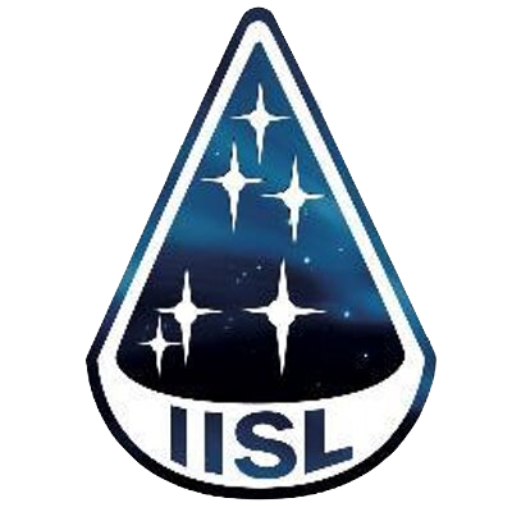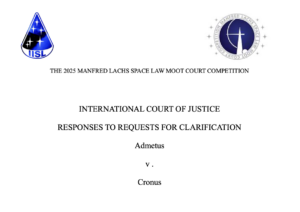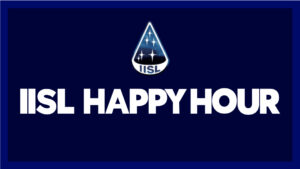Note for IISL members wishing to submit a paper for IAC Sydney

IPC members Lesley Jane Smith and Catherine Doldirina have the following advice to those wishing to submit abstracts to this year’s IAC Sydney.
Category E, Space and Society, IISL E.7: Abstracts for IISL should be submitted under. IISL own sessions are listed under E7.
Submission Deadline: 28th February 2025 prior to midnight CET.
Even although this end of February deadline is generally always extended by the IAF around one week prior to expiry, we do not recommend relying on an extension taking place. Should the deadline be extended, you will not be able to adjust abstracts once they are submitted. In our internal dealings, we appreciate that there uis a level of unequal conditions prevailing for those who have submitted on time and those who take advantage of a possible deadline. Should there be issues in selection of balancing the merits of one paper over another, the chairs may well look to see which of the abstracts was submitted under the principal deadline, not the extension. This is the only way that some recognition can be given for the hard work and timeliness of submission, independent of the deadline extension.
Selecting your session: Authors should select the session of their choice corresponding to the topic they wish to discuss. Authors who are still young professionals, and either in training, further education AND are under 35 should present their abstracts to the E7.1. Young Scholars session. This is exclusively for young scholars, and not for academic supervisors or senior co-authors.
Time constraints and limited number of abstracts admissible within symposium: no double submissions; no multiple authorship. There is a finite number of abstracts of about 12-14 papers that can be admitted to each session. This is dictated by the session timing, which is now reduced by the IAF to 90 minutes. It is neither appropriate nor feasible to require authors to present their research and findings in anything under 8 minutes.
No double submissions: Both IAF and IISL operate a strict policy of no double submissions. This is to prevent over-subscription of sessions by individual authors, and allow reasonable chance for others to have their work considered for acceptance. The practice of co-authorship is to be kept to a minimum, with the co-author being deemed an author for that purpose.
Interactive Presentations: If authors are unsure whether their papers will be accepted and/or are looking for a high degree of probability of acceptance, then these authors should submit to the interactive poster sessions. The IP sessions are not subsidiary in quality to the main sessions, they simply use an interactive, discursive format that requires the author to be on site to discuss the poster and article at a specific time that IAF will indicate. There is a separate award (prize) for posters submitted into this category of abstracts.
Abstract Selection: Selection is done by the session chairs, not by IPC who have no influence on decisions taken.
Abstracts not selected: Please note that there are various reasons why your abstract may not be selected. Most sessions are per seoversubscribed, so that the Session Chairs select in terms of quality, as best suits the subject. A reserve list is always made. Should selected authors not formally commit towards IAF that they are attending IAC (the request to confirm attendance is generally around end May), the waiting list serves to fill any empty positions that occur within the session. The reserve list is ranked. Authors are therefore reminded of the advantages offered by the Interactive Poster session (IP) which offers a less complicated and more predictable form of not only submission but in itself, acceptance. The trend within IAF is to move towards more interactive poster sessions and less
Rapporteur Volunteers: IISL frequently requires additional support at rapporteur level, due to some rapporteurs not always being able to travel. Given the costs involved in travelling to Sydney, those younger professionals who specifically know they will be on site there should please contact IPC.
Assessment of session by Chairs: Abstracts are selected by chairs and arranged in a structured order best reflecting the subject matter.
Further information available via: https://www.iafastro.org/events/iac/international-astronautical-congress-2025/technical-programme.html
Authors wishing instruction on technical issues should contact IAF directly: support@iafastro.org


